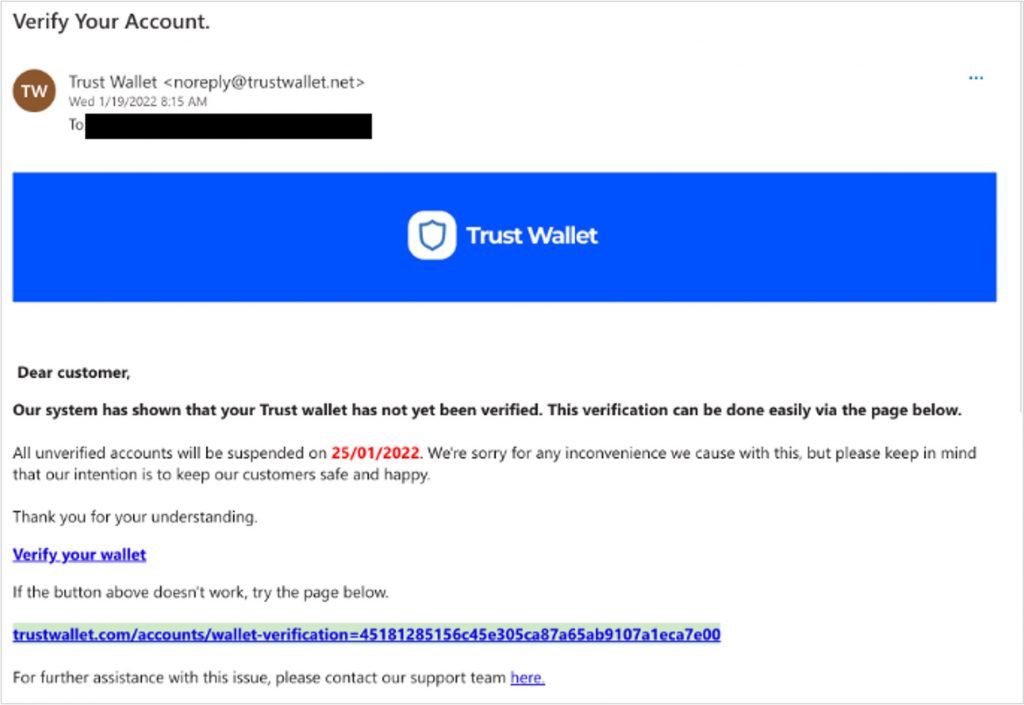Top 4 most common crypto scams & how to stay safe
2021 was an immensely profitable year for crypto investors. The two big players in the crypto space, Bitcoin and Ether (Ethereum) grew by 59.8% and 399.2%, respectively, and some of the comparatively smaller cryptocurrencies such as SOL (Solana) saw returns of well over 11,000%!
Unfortunately, however, it was also a very profitable year for crypto scammers, with them taking a record $14 billion. Compared to the previous year, losses from crypto-related crime in 2021 increased by 79%!
Clearly, if you’ve already invested in crypto or it’s something you’ve been thinking about doing, becoming wise to the scammers’ most popular tactics is essential! Keep on reading to learn how to avoid becoming another victim of crypto scammers.
#1 – Rug pull scams
If you’ve ever visited a crypto exchange website or downloaded one of the services’ apps, you will have almost certainly seen the “top movers” section. This is the area where the top-performing cryptocurrencies are listed — and often with jaw-dropping recent increases in value.
Although most of the cryptocurrencies available on crypto exchanges are legitimate, not all of them are. And the ones that aren’t are looking to exploit people who don’t want to miss an opportunity to make a nice profit.
Take the recent Squid Game token scandal for example. Late last year, Squid, a cryptocurrency based on the immensely popular TV series Squid Game, rose in value from around 1 cent to over $2,800 in just a few days, before crashing back down to effectively 0 overnight. The creators of the cryptocurrency — who were not affiliated with the TV show in any way — prohibited investors from selling their cryptocurrency, before cashing out and making off with $3.3 million!
#2 – Fake crypto websites
Scammers are clever, there’s no doubt about that. A lot of them have been able to produce nearly indistinguishable copies of legitimate crypto websites. Check out the example below.


These fake sites will let you deposit money, buy cryptocurrency, and they may even let you withdraw it too. However, once you and others begin to trust the site, the scammers will spring the trap. They will shut down the site and make off with all the users’ funds.
#3 – Crypto phishing scams (ex: Binance, Trust Wallet)
Crypto phishing scams are one of
the scammers’ favorite weapons. We’re always detecting new and clever crypto
phishing scams that the scammers are using to separate victims from their
cryptocurrency.
Crypto phishing scams are most commonly sent out
to potential victims by email and text message. The messages will vary in
content, but they will always contain a link or a link embedded in a button
that takes you to a scammer-controlled website. The scammers’ goal is to get
you to enter information that will allow them to access your cryptocurrency —
whether it’s stored on a crypto exchange or in a crypto wallet. Below are two
examples of crypto phishing scams.


#4 – Social media scammers and their “crypto giveaways”
Whether they’re impersonating
legitimate crypto companies or well-known celebrities, social media crypto
scammers are always praying on potential victims.
They will often hijack verified Twitter profiles
(the ones with the blue checkmarks) and post about “crypto giveaways”. The
posts contain links that people click on under the premise of claiming their
free crypto, but in fact the websites they’re directed to are only designed to
steal their crypto and personal information.

These types of scams can happen on any social media platform and can often be very costly — one man lost a staggering $560,000 to a scammer pretending to be Elon Musk!
How to stay protected
- Don’t invest in newly launched cryptocurrencies. Do your research and stick to ones that are established and trusted.
- Purchase cryptocurrency from reliable companies only.
- Ignore and delete any messages that instruct you to send cryptocurrency or enter any personal or crypto-related information.
- Be extra suspicious of crypto giveaways on social media. Generally, when things seem too good to be true, they are.

